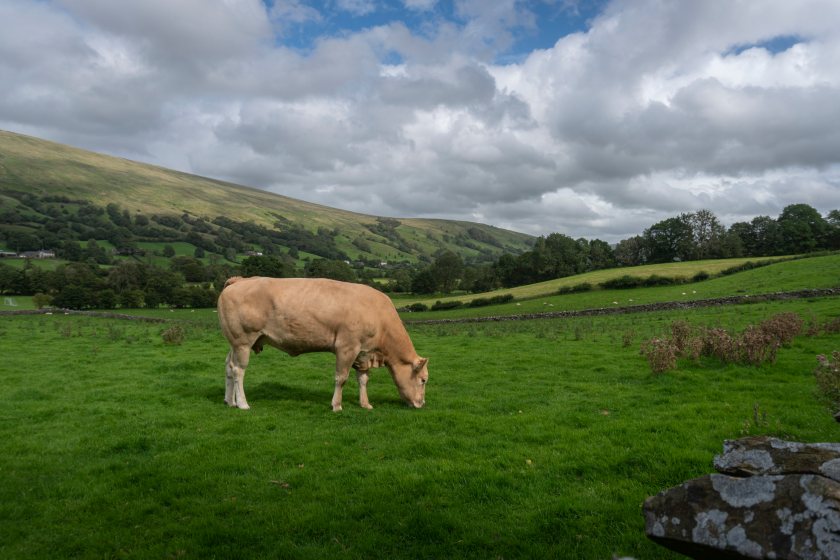Grass-fed livestock could help fight climate change, says report

A new report challenges the widespread perception that meat and dairy from cattle and sheep are inherently harmful to the environment and public health.
Instead, the Sustainable Food Trust's (SFT) report argues that animals reared on grass through regenerative methods can play a crucial role in addressing climate change.
Entitled 'Grazing Livestock: It’s not the cow but the how' [PDF], the charity highlights the significant differences between industrial, grain-fed systems and nature-based, pasture-fed livestock systems.
It emphasises that livestock reared without synthetic fertilisers or chemicals, on pasture they are naturally adapted to, contributes to soil health, biodiversity and rural economies while providing nutrient-rich food.
Lord Deben, former chair of the UK Climate Change Committee, welcomed the report: "[It] could help to resolve some of the not inconsiderable public confusion about the impact on climate change of ruminant animals in general and cows in particular.
"This confusion has led to a widespread view that all cattle are unsustainable, but it doesn’t have to be this way – providing we farm and eat differently.”
The report presents a detailed contrast between industrial livestock production and lower-yielding but more sustainable regenerative systems.
SFT modelling suggests that pasture-based cattle and sheep could provide significant proportions of key nutrients, such as up to 98% of the UK’s vitamin B12 needs and 30% of its protein, without relying on global supply chains or high chemical inputs.
Patrick Holden, CEO of the charity said: “This report clearly demonstrates the need to differentiate between livestock that are part of the problem and those that are an essential part of the solution. In other words, it’s not the cow, it’s the how.”
He added that the debate over whether the public should eat meat and dairy had become unnecessarily polarised.
"People have been led to believe that all meat is bad, but what really matters is how the food has been produced – and whether that farming system supports or undermines the health of people and the planet.”
While critics often cite the greenhouse gas emissions from livestock, the report calls for a more holistic assessment—one that includes the carbon-sequestering potential of well-managed grasslands and broader sustainability benefits.
In his foreword, Lord Deben wrote in the report: “I have had to face up to the negative impacts of livestock on greenhouse gas emissions, including those from intensively managed poultry, pigs and cattle.
"What few understand is that there is a need to differentiate between those livestock systems which are part of the problem in terms of emissions, and those which, under the correct management, are potentially part of the solution.”








